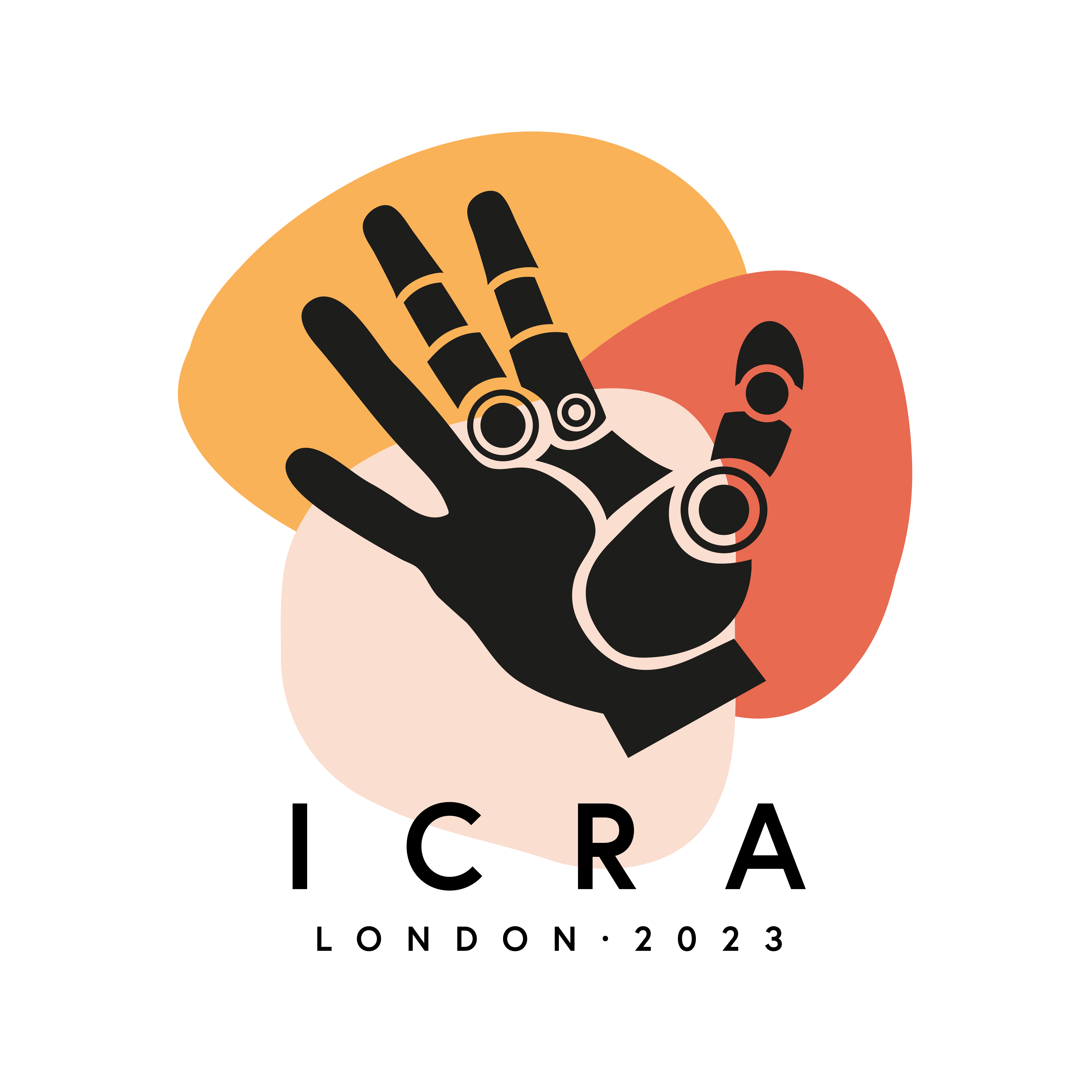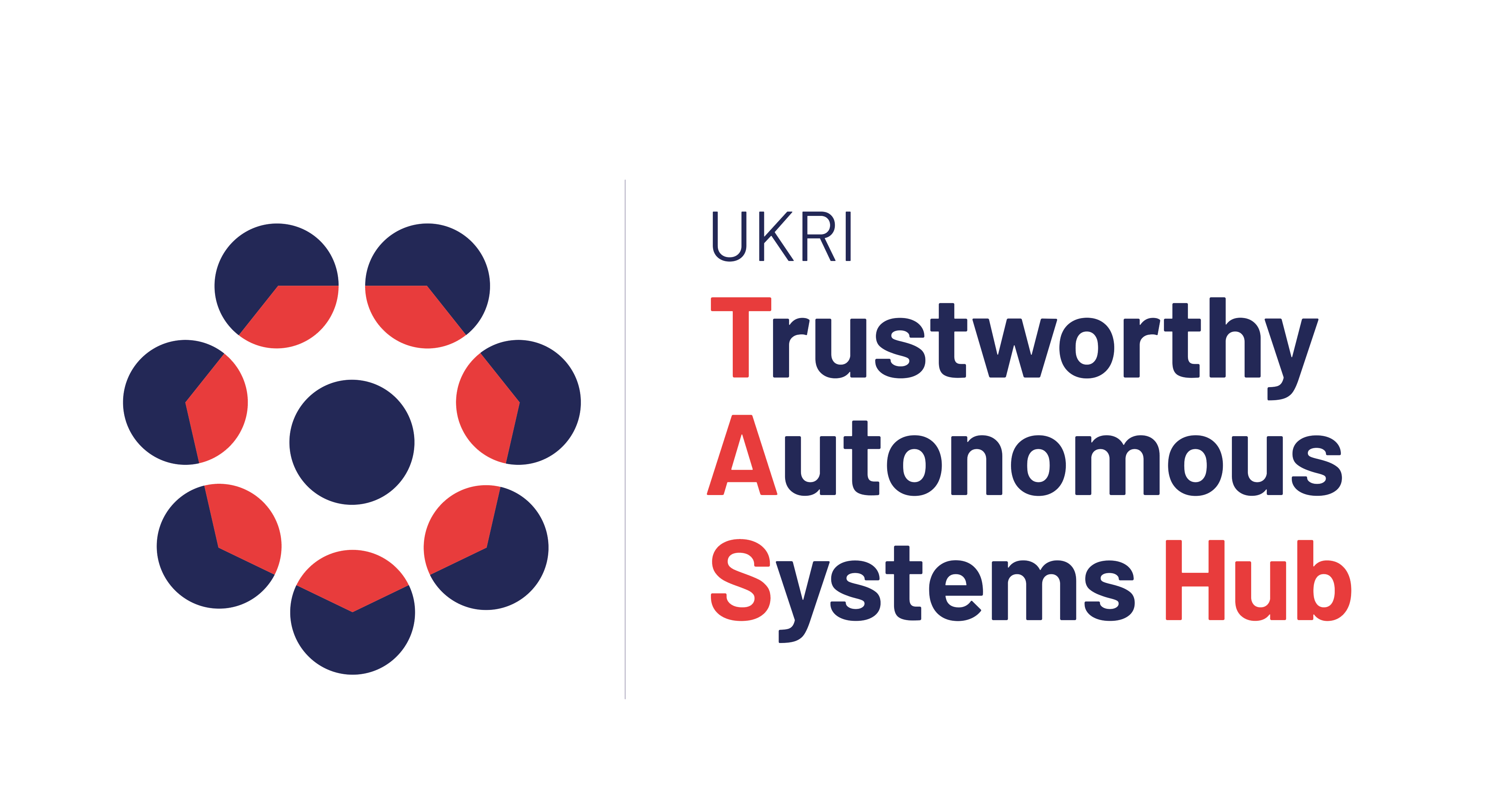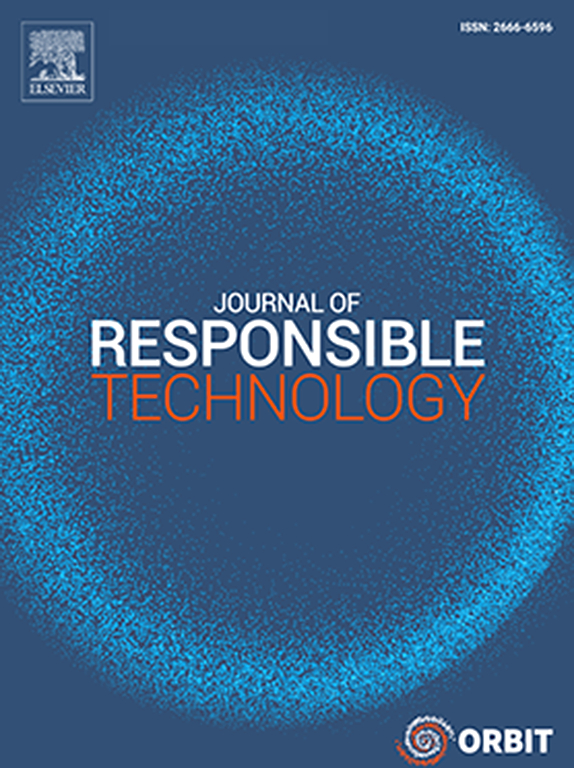


About
Our joint ICRA 2023 Workshop on Multidisciplinary Approaches to Co-Creating Trustworthy Autonomous Systems will bring together academics and industry practitioners from a wide range of disciplines and backgrounds (including robotics, engineering, AI, computer science, social science, humanities, design, and law). We will organise a workshop which will be open and welcoming to researchers from the autonomous agents and multi-agent systems community.
Defining autonomous systems as systems involving software applications, machines, and people, which are able to take actions with little or no human supervision, the workshop will explore different definitions of TAS and individual aspects of trust from a multidisciplinary perspective. We are interested in several factors contributing to the trustworthiness of autonomous systems, which include but not limited to the following:
- Robustness and resilience in dynamic and uncertain environments.
- The assurance of the design and operation of autonomous systems through verification and validation processes.
- The confidence the systems inspire as they evolve their functionality.
- Their explainability, accountability, and understandability to a diverse set of users.
- Defences against attacks on the systems, users, and the environment they are deployed in.
- Governance and the regulation of their design and operation.
- The consideration of human values and ethics in their development and use.
To explore these topics through the lenses of different disciplines and to co-create a common ground, we propose to organise a full-day workshop with a balanced mix of invited talks, panel discussions, contributed presentations, and focus groups. While the workshop will be an in-person event, we will also stream sessions online and allow for an interactive Q&A.
A diverse group of invited speakers and panellists will present and discuss fundamental issues as well as current and future challenges of TAS.
Contributed Papers will be presented in spotlight talks and during two poster sessions. We will seek submissions describing novel ideas and/or preliminary results, but also related works concerning TAS that have been peer-reviewed and accepted by other top-tier journals and/or conferences (e.g. ICRA or AAMAS). The latter allows workshop participants to learn about recent works that have been published in the field. The Programme Committee will nominate and select papers for the Best TAS Paper Award, while workshop participants will cast their votes for the Best TAS Poster Award on the day.
An online survey on TAS (conducted before the event) will complement the workshop. Results of the survey will be presented during the workshop and will guide the work of focus groups during the day. Focus groups will work towards a multidisciplinary taxonomy on various aspects and the emerging challenges for TAS which will be summarised in a workshop report and/or joint white paper. A particular focus of the working groups will be on the design, engineering, operation and regulation of TAS.
Finally, a Special Issue on TAS in the Journal of Responsible Technology will capture and disseminate the workshop outcomes including the results of the survey, the multidisciplinary taxonomy, and extended versions of the contributed papers. Thereby the workshop outcomes are preserved beyond the event.
Call for Papers
The workshop on Multidisciplinary Approaches to Co-Creating Trustworthy Autonomous Systems (MACTAS) will bring together academics and industry practitioners from a wide range of disciplines and backgrounds (including robotics, engineering, AI, computer science, social science, humanities, design, and law). Defining autonomous systems as systems involving software applications, machines, and people, which are able to take actions with little or no human supervision, the workshop will explore different definitions of TAS and individual aspects of trust from a multidisciplinary perspective. We are interested in several factors contributing to the trustworthiness of autonomous systems, which include but not limited to the following: robustness and resilience in dynamic and uncertain environments; the assurance of the design and operation of autonomous systems through verification and validation processes; the confidence the systems inspire as they evolve their functionality, their explainability, accountability, and understandability to a diverse set of users; defences against attacks on the systems, users, and the environment they are deployed in; governance and the regulation of their design and operation; and the consideration of human values and ethics in their development and use.
Trust is a multi-dimensional issue and is conceptualised differently by a range of disciplines. Hence, we invite novel contributions (short and regular papers with 2-4 and 6 pages, respectively) as well as already published journal/conference papers covering a wide set of topics that will be attractive to both technical and non-technical audiences:
- Methodologies to certify autonomous systems
- Public perception of autonomous systems
- Explainable and Interpretable AI solutions for real-world applications
- Safety and security of autonomous systems
- Trustworthy and resilient human-machine teaming
- Regulation
- Notions of trust in autonomous systems
- Responsible Research and Innovation for trustworthy AI and autonomous systems
- Transparency of AI systems
- System of humans
Submission Link
Please, use the link below to submit to MACTAS 2023.
https://easychair.org/my/conference?conf=mactas2023
Submission Types
- Short Paper (2-4 pages, excluding references)
- Regular Paper (6 pages, excluding references)
- Published papers (to be presented at the workshop)
Please use the standard ICRA double column template (available here) when submitting a novel contribution.
All accepted papers will be presented in a spotlight talk as well as a poster. Additionally, all accepted contributions will be also invited to submit an extended version to our planned Special Issue on TAS in the Journal of Responsible Technology (more details TBA).
Best Paper / Poster Awards
- Best TAS Paper Award
- Best TAS Poster Award
Our international Programme Committee will review all submissions using EasyChair and will also select a paper for the Best TAS Paper Award (£250). The workshop participants will vote for a paper to receive the Best TAS Poster Award (£250).
Important dates:
- Paper submission: 31st March, 2023 (AOE)
- Acceptance notification:
26th April, 20235th of May, 2023 - Camera-ready: 10th May, 2023 (AOE)
- Workshop date: 29 May, 2023
Accepted Papers
-
Dario Mantegazza, Alessandro Giusti, Luca Gambardella and Jérôme Guzzi. “An Outlier Exposure Approach to Improve Visual Anomaly Detection Performance for Mobile Robots.”
-
Gowri Pradeep, Prokar Dasgupta, Sylvaine Tuncer, and Paul Luff. “Trust and Trustworthiness in Robotic Surgery: A Narrative Review.”
-
Matthew Cavorsi, Ninad Jadhav, David Saldaña, and Stephanie Gil. “Adaptive Malicious Robot Detection in Dynamic Topologies.”
-
David Cameron, Emily Collins, Stevienna de Saille, and James Law. “The Social Triad model of Human-Robot Interaction.”
-
Yiwei Lyu, Wenhao Luo, and John Dolan. “Risk-aware Safe Control for Decentralized Multi-agent Systems via Dynamic Responsibility Allocation.”
-
Marko Thiel, Justin Ziegenbein, Noel Blunder, Johannes Hinckeldeyn, and Jochen Kreutzfeldt. “Mobile Robots on Sidewalks: Legal Context and Resulting Requirements for Autonomous Last-Mile Delivery in Germany.”
-
Matthew Story, Harriet Cameron, Gisela Reyes Cruz, and Maria Jose Galvez Trigo. ”I want it to be happy instead”: co-designing robotic systems for cultural experiences with children that are autistic and/or have Learning Disabilities.”
-
Adam Taras, Niko Suenderhauf, Peter Corke, and Donald Dansereau. “The Need for Inherently Privacy-Preserving Vision in Trustworthy Autonomous Systems.”
-
Aleksandra Landowska, Pablo Lopez-Custodio, Khairidine Benali, Liangju Min, Sue Cobb, Horia Alexandru Maior, Ayse Kucukyilmaz, and Max L. Wilson. “Mental Workload Estimation using fNIRS in Robotic Teleoperation.”
Schedule
| Time | Speaker | Title | Session Chair |
|---|---|---|---|
| 09:00 | Organisers | Welcome note & TAS Overview | Lars / Sinem |
| 09:20 | Kate Devlin (King’s College London) | Our friends, the machines? | Lars / Sinem |
| 09:50 | Spotlight talks | Contributed papers / Poster Teaser Session | Mo / Zhengxin |
| 10:30 | Coffee break & Poster session | Baris / Hugo | |
| 11:15 | Joanna Al-Qaddoumi (University of York) | Trust ex machina: on a multi-level approach to ‘meaningful’ artificial intelligence governance. | Baris / Hugo |
| 11:45 | Panel discussion 1: Agish George (Dyson), Joanna Al-Qaddoumi (University of York), Kate Devlin (King’s College London) | Theme: Co-Creation of TAS | Lars / Sinem |
| 12:30 | Lunch Break | ||
| 14:00 | Organisers | Survey results / Key Questions for Focus groups | Ayse / Sinem |
| 14:20 | Focus groups | Small working groups focusing on different aspects of TAS including: Design, Engineering, Operation, and Regulation | Ayse / Sinem |
| 15:30 | Coffee break & Poster session | Baris / Hugo | |
| 16:00 | Subramanian Ramamoorthy (Univ. of Edinburgh) | Algorithmic approaches to simulation-based safety evaluation in open environments | Mo / Zhengxin |
| 16:30 | Luis Sentis (Univ. of Texas) | Mental Workload Estimation During Human Multi-Robot Search Teaming using Wearable Thin Film EEG Sensors | Mo / Zhengxin |
| 17:00 | Panel Discussion 2: Luis Sentis (University of Texas, Austin), Subramanian Ramamoorthy (Univ. of Edinburgh) | Theme: TAS in our Society - Testing, Operation & Governance | Ayse / Sinem |
| 17:45 | Organisers | Best TAS Paper/Poster Awards & Concluding remarks | |
| 18:15 | End of Workshop |
Organising Committee
| Name | Affiliation | Contact details |
|---|---|---|
| Lars Kunze | Univ. of Oxford | Email: lars@robots.ox.ac.uk URL: https://ori.ox.ac.uk/~lars |
| Sinem Getir Yaman | Univ. of York | Email: sinem.getir.yaman@york.ac.uk URL: https://sinemgetir.github.io |
| Mohammad Naiseh | Univ. of Bournemouth | Email: mnaiseh1@bournemouth.ac.uk URL: https://staffprofiles.bournemouth.ac.uk/display/mnaiseh |
| Ayse Kucukyilmaz | Univ. of Nottingham | Email: ayse.kucukyilmaz@nottingham.ac.uk URL: http://www.cs.nott.ac.uk/~pszak1/ |
| Hugo Araujo | King’s College London | Email: hugo.araujo@kcl.ac.uk URL: https://kclpure.kcl.ac.uk/portal/hugo.araujo.html |
| Baris Serhan | Univ. of Manchester | Email: baris.serhan@manchester.ac.uk URL: https://www.research.manchester.ac.uk/portal/baris.serhan.html |
| Zhengxin Yu | Lancaster Univ. | Email: z.yu8@lancaster.ac.uk URL: https://www.lancaster.ac.uk/scc/about-us/people/zhengxin-yu |
Programme Committee
| Name | Affiliation |
|---|---|
| Mohammad Naiseh | Bournemouth University |
| Edmond Awad | University of Exeter |
| Katie Parnell | University of Southampton |
| Andrew Sogokon | Carnegie Mellon University |
| David Bossens | University of Southampton |
| Lu Yang | Lancaster University |
| Liz Dowthwaite | University of Nottingham |
| Elnaz Shafipour | University of Southampton |
| Caitlin Bentley | King’s College London |
| Geylani Kardas | Ege University International Computer Institute |
| Jennifer Williams | University of Southampton |
| Tayyaba Azim | University of southampton |
| Auste Simkute | University of Edinburgh |
| Alan Chamberlain | University of Nottingham |
| Justyna Lisinska | King’s College London |
| Lina Marsso | University of Toronto |
Special Issue
Call for our special issue can be accessed using this link.
Emerging Challenges Survey: Trustworthy Autonomous Systems
This online survey aims to collect attitudes and perspectives toward Trustworthy Autonomous Systems (TAS) from a multidisciplinary lens. The survey is aimed to complement this workshop. The results of the survey will complement focus group discussions to form a multidisciplinary taxonomy on various aspects and the emerging challenges for TAS, including but not limited to aspects of design, engineering, operation and regulation of TAS. The results will be reviewed by the workshop organisers. By completing this survey, you are helping us understand and support the specific needs of this research community.
No personal or identifying data is collected as part of this survey. We process the data you process on the legal basis that our research is in the public interest, we have legitimate interests and / or that you consent to data processing in freely and voluntarily participating in our research activities. The survey can be accessed using the link below: